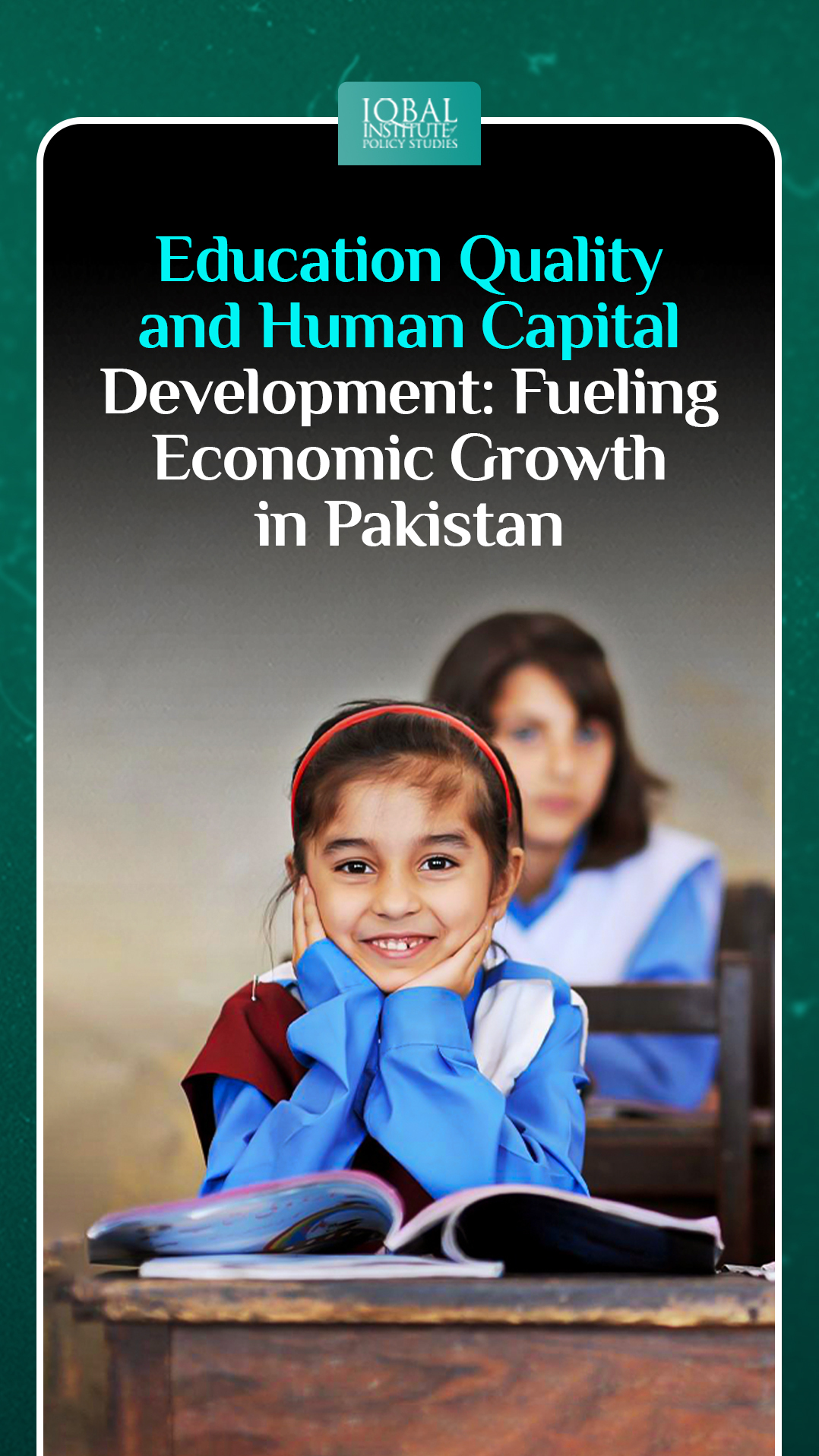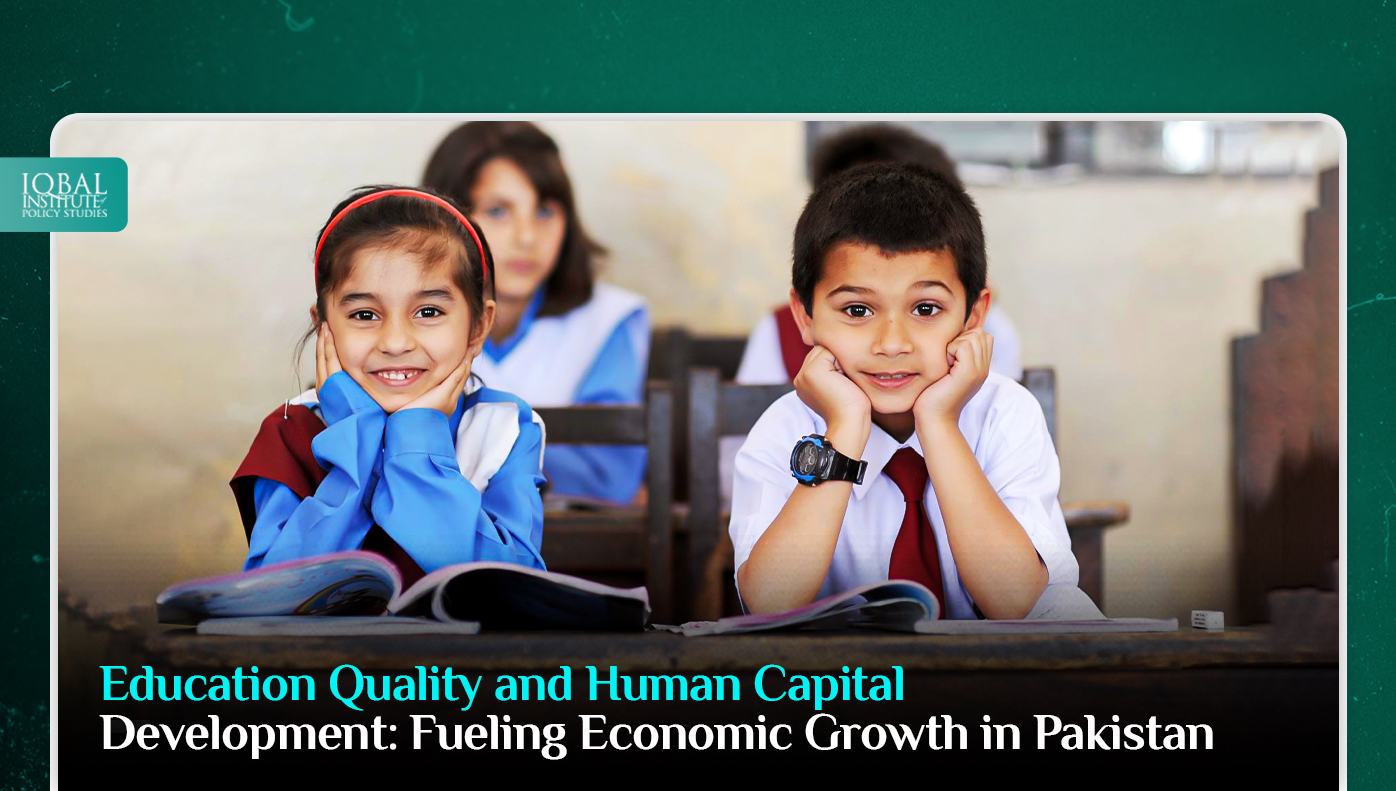In the intricate web of challenges and aspirations that Pakistan weaves, the pursuit of quality education and robust human capital emerges as a linchpin for progress. The correlation between education quality, human capital development, and economic growth is a dynamic interplay that orchestrates the trajectory of nations. As Pakistan forges its path towards development, it is paramount to comprehend how the tapestry of education interlaces with the threads of economic advancement. This blog delves deep into the intricate relationship between education, human capital, and economic growth in Pakistan, while proffering strategies to elevate the education system as a cornerstone of national prosperity.
Education Quality – The Keystone of Human Capital
Education transcends being a mere instrument of knowledge dissemination; it metamorphoses into a conduit for shaping human potential into a formidable resource—human capital. High-quality education equips individuals with skills, knowledge, and critical thinking acumen, imperative to thrive in a swiftly evolving global landscape. It nurtures innovation, kindles creativity, and endows individuals with the tools to contribute substantively to their societies and economies.
In the realm of Pakistan, the relationship between education quality and human capital development is unequivocally acknowledged. However, the crux of the matter lies in ensuring that education doesn’t solely propagate theoretical comprehension but also nurtures practical skills, ethical values, and an analytical mindset. Without this holistic approach, the reservoir of human capital remains shallow, leaving the nation’s growth aspirations parched.
Human Capital Development and Economic Growth
Human capital emerges as the fulcrum upon which a nation’s economic advancement pivots. As individuals gain access to quality education, their employability, productivity, and adaptability to evolving work paradigms burgeon. This, in turn, nurtures economic diversification, innovation, and the cultivation of a knowledge-based economy.
In the context of Pakistan, unleashing the entire spectrum of human capital is imperative to propel sustainable economic growth. A workforce enriched with advanced skills can contribute substantively to a plethora of industries, spanning technology and manufacturing to services and agriculture. As individuals are empowered to contribute meaningfully, they stimulate investment, entrepreneurship, and societal progress, creating a ripple effect that propels the nation towards holistic development.
Challenges in Pakistan
Access Disparities
Although commendable strides have been taken to enhance enrollment rates, discrepancies in access to education persist, often along regional and socio-economic lines.
Education Quality
Despite visible progress in enrollment, the quality of education remains a pressing concern. Rote learning, outdated curricula, and a deficiency in teacher training thwart the cultivation of critical thinking and practical skills.
Gender Disparities
Gender inequalities in education echo broader societal imbalances. Eradicating these imbalances is paramount to fostering comprehensive human capital development.
Teacher Capacity
The efficacy of education rests upon the shoulders of teachers. Enhancing teacher training, incentives, and support mechanisms is pivotal to elevating educational standards.
Proposed Strategies for Improvement
Curriculum Reforms
Revamping curricula to underscore critical thinking, problem-solving, and practical skills is pivotal to nurturing an adaptable and competent workforce.
Teacher Training
Investing in the professional development of educators augments their ability to impart quality education, fostering a generation of adept learners equipped for the challenges of the modern world.
Technology Integration
Harnessing technology for education delivery and skill enhancement can bridge geographical gaps, offering access to cutting-edge knowledge and resources.
Vocational Training
Bolstering vocational and technical education equips individuals with industry-relevant skills, augmenting employability and fostering entrepreneurship.
Early Childhood Education
Prioritizing early childhood education paves the way for a robust foundation for future learning and cognitive development.
Inclusive Education
Ensuring equal education access for marginalized segments, including girls and individuals with disabilities, contributes to a diversified and resilient human capital reservoir.
Conclusion
Education quality stands as the bedrock upon which human capital development is sculpted, steering economic growth, innovation, and societal prosperity. Pakistan’s trajectory towards sustainable development hinges upon viewing education as a conduit for empowerment and progress. By bolstering access, quality, and relevance, Pakistan can chisel its human capital into a dynamic force that propels the nation towards economic prosperity. Through a collective effort encompassing governmental initiatives, educational institutions, dedicated educators, and proactive communities, Pakistan can reshape its educational landscape, laying the cornerstone for a more vibrant, adaptive, and prosperous future. The narrative of education as an instrument of transformation reverberates as Pakistan’s call to action—transforming today’s learners into tomorrow’s leaders and shaping a trajectory of resilience, innovation, and prosperity.
This article is written by Maha Nazami. Maha is a research analyst at the Iqbal Institute of Policy Studies (IIPS).



Leave a Reply